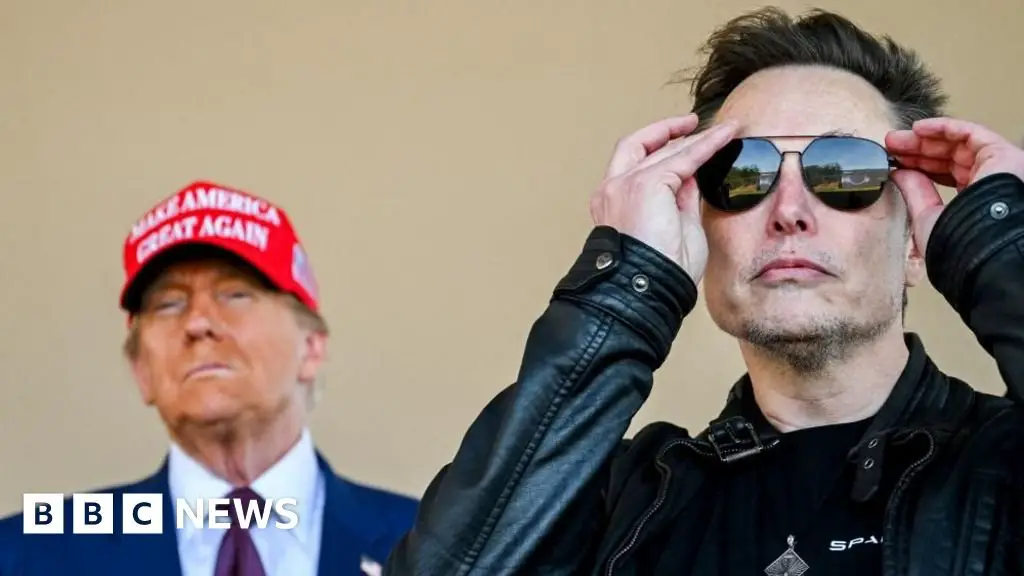A funny thing happened on the road to a bipartisan agreement to fund U.S. government operations and avoid a partial shutdown this week.
Conservatives in Congress – encouraged by tech billionaire Elon Musk – balked.
Republicans attempted to regroup Thursday afternoon, offering a new, scaled-back package to fund the government. That vote failed as 38 Republicans joined most Democrats in voting “no.”
All this political drama is just a foretaste of the chaos and unpredictability that could lie ahead next year under unified Republican rule in Washington.
The man at the center of this week’s drama holds no official government title or role. What Elon Musk has, however, is hundreds of billions of dollars, a social media megaphone, and the ear of not only the President of the United States, but also rank-and-file conservatives in Congress.
On Wednesday morning, the tech tycoon went to to be temporarily financed until mid-March.
As the number of his posts about the proposed agreement reached triple digits, at times amplifying factually inaccurate claims from conservative commentators, opposition to the legislation grew in Congress.
And on Wednesday evening, Donald Trump — perhaps sensing that he needed to put himself at the forefront of the growing conservative insurgency — publicly declared that he, too, opposed the federal funding bill.
He said it contained wasteful spending and Democratic priorities, but also demanded that Congress take the politically sensitive step of raising or even eliminating the legal cap on new American debt issues, which the U.S. would reach sometime next summer.
Support for the stopgap bill then collapsed, forcing Johnson and his leadership team to look for an alternative path forward. Musk celebrated and announced that “the voice of the people has won.”
However, it might be more accurate to say that it was Musk’s voice that triumphed.
On Thursday afternoon, Republicans unveiled a new proposal that suspended the debt ceiling for the first two years of Trump’s second term, funded the government through March and included some disaster relief and other measures included in the original funding package.
But Musk’s involvement may not sit well with some lawmakers. Democrats in the room joked about “President Musk,” while even some Republicans publicly grumbled.
“WHO?” Pennsylvania Republican Glenn Thompson responded to the question about Musk. “I don’t see him in the chamber.”
Musk may have been the instigator, but this latest congressional funding crisis shows what has been — and likely will continue to be — an ongoing challenge to the slim Republican majority in the House.
For two years, Republicans in the chamber have struggled to maintain a united front amid a party made up, at least in part, of politicians who actively despise the government they help lead.
Internal divisions delayed Kevin McCarthy’s election as House Speaker in January 2022 and led to his ouster the following year, a first in American history. Johnson eventually replaced him, but only after weeks of leaderless limbo.
Some Republicans had hoped that with Trump’s election, members of their majority, which will shrink when the new Congress is sworn in next month, would be more willing to march in lockstep to support the new president’s agenda. And some are.
“I think President Trump laid out the plan pretty clearly, so I don’t know what the discussions are about,” Florida Congresswoman Anna Paulina Luna told reporters after internal Republican meetings Thursday afternoon.
But what this week has shown is that the president-elect may not always give the Legislature the clear, consistent direction it needs.
His insistence on raising the debt limit, for example, surprised many in his own party. And external influences, such as those from Musk or others, could add additional instability to the process.
If Republicans fail to achieve anything close to unanimity in the House, they will have to find ways to win over Democrats if they want to achieve any legislative success. And what this week has shown (once again) is that the kind of policy compromises needed could lead to greater Republican defections.
Trump’s party will face the challenge of governing effectively on its own – but it also may not be able to tolerate a government with the help of the Democrats.
If there is no political balance in the chamber, Trump’s more ambitious legislative priorities would be at risk even before he takes office.
Republicans may still find a way to avoid a prolonged government shutdown through a temporary budget resolution, even if the first round of pressure from Trump resulted in an embarrassing failure to win enough support within his own party.
For Johnson, however, the damage may already be done. His authority over House Republicans was undermined — first by Musk and then by Trump — just weeks before his re-election as House speaker.
One Republican, Thomas Massie of Kentucky, has already said he will not support Johnson’s re-election. Others, including members of Johnson’s own leadership team, were noncommittal. Marjorie Taylor Greene, the firebrand Georgia congresswoman who unsuccessfully pushed for Johnson’s ouster in May, suggested Musk become a speaker.
Meanwhile, Trump – the only man who could throw Johnson a lifeline – equivocated, telling Fox News that Johnson could “easily” remain speaker if he “acts decisively and toughly.”
However, determination may not be enough if every direction seems to lead to a dead end for the speaker.




